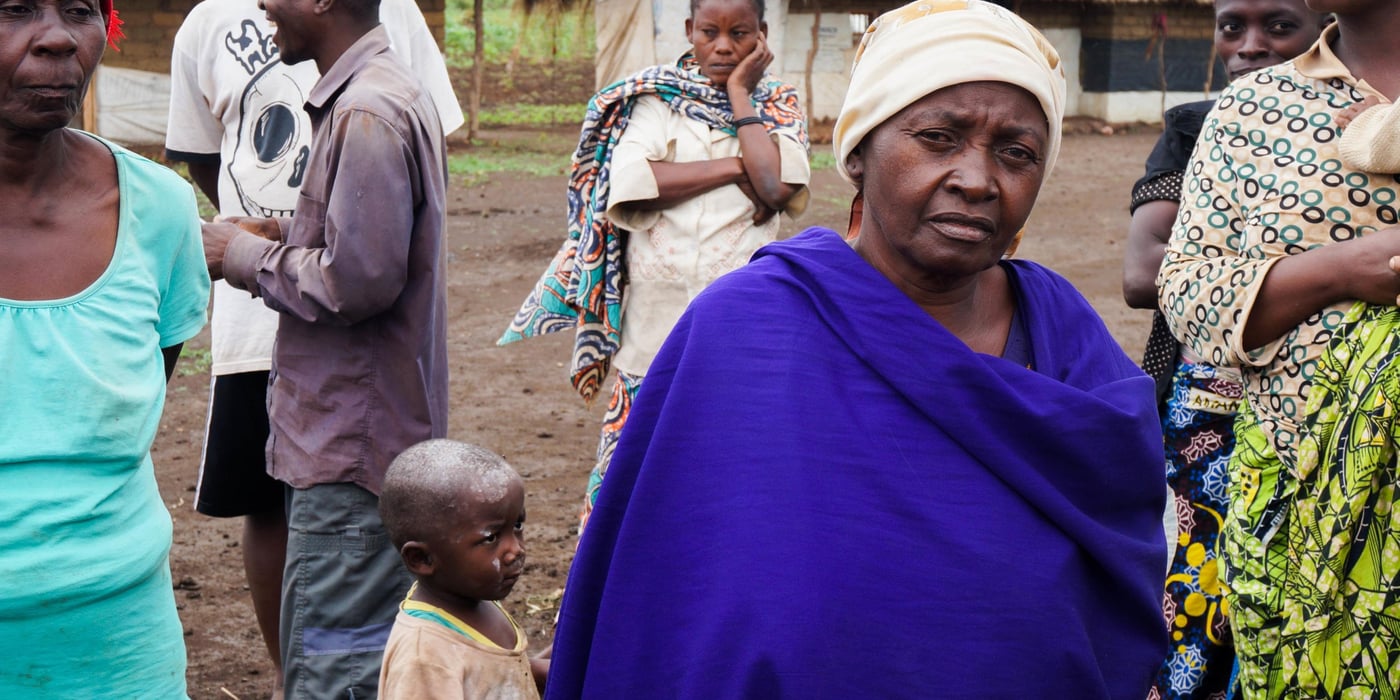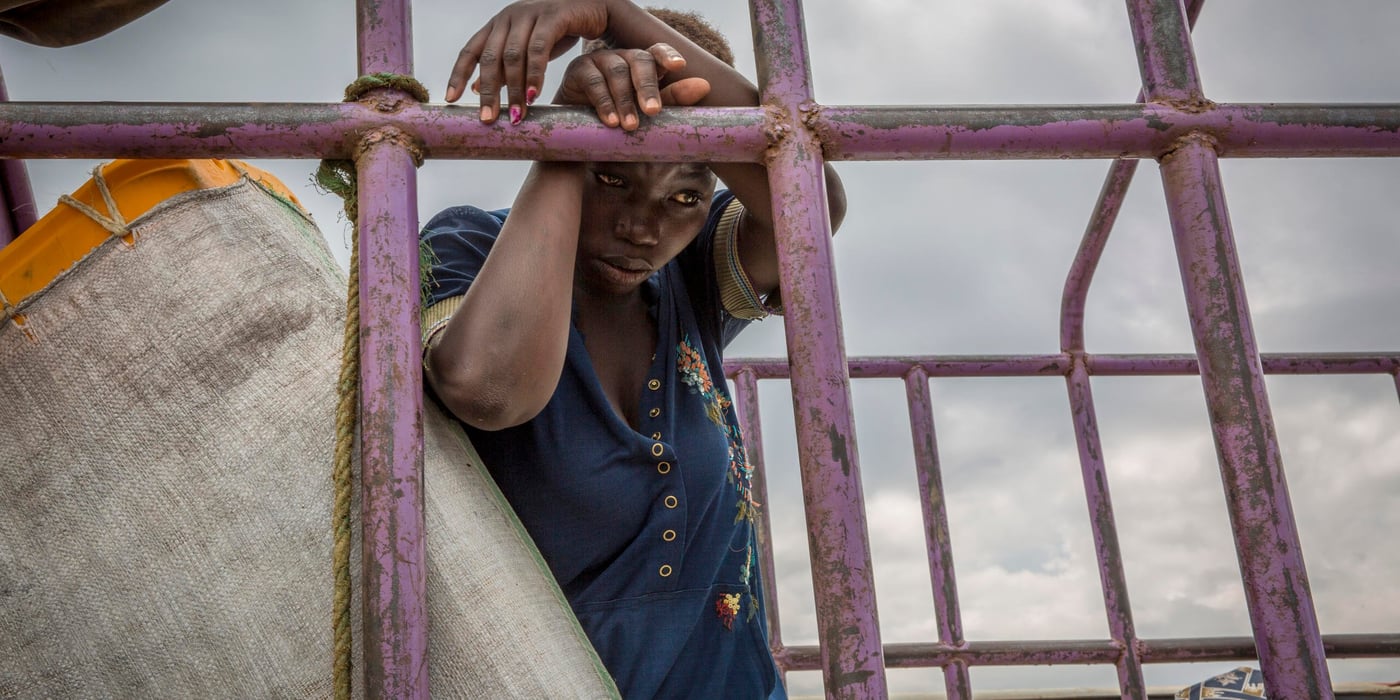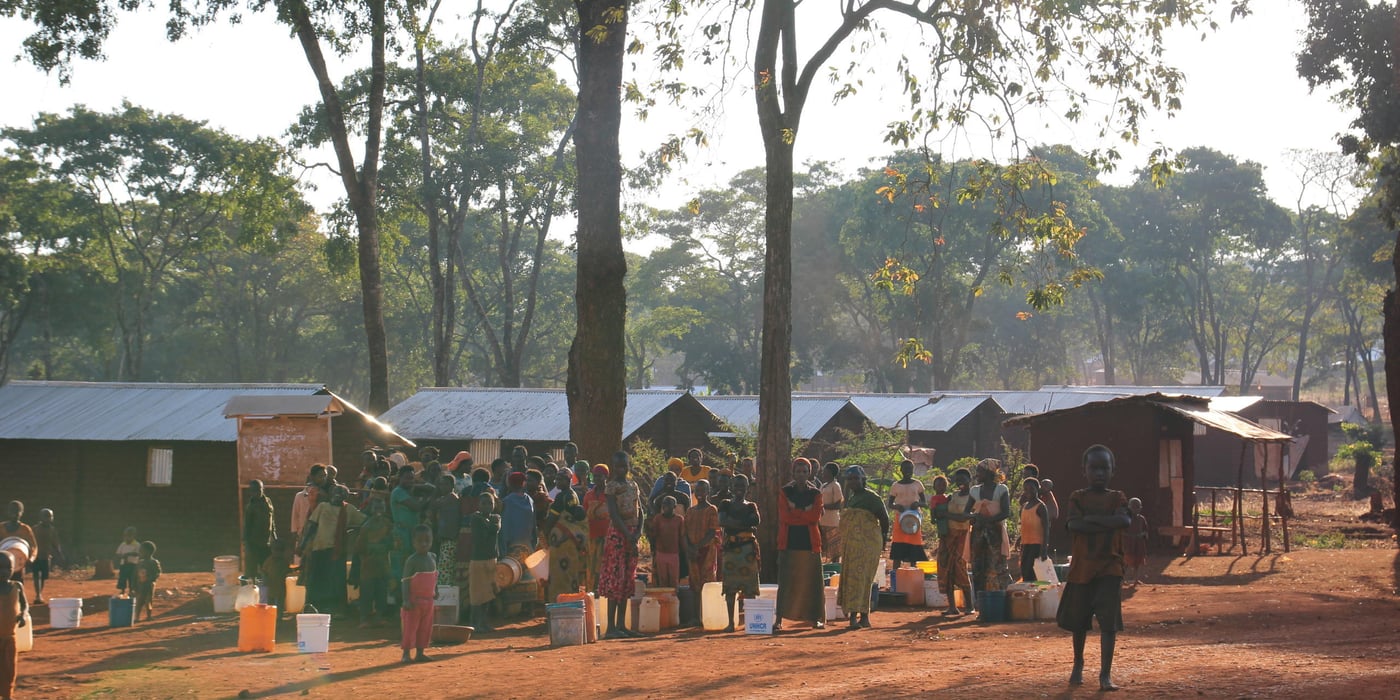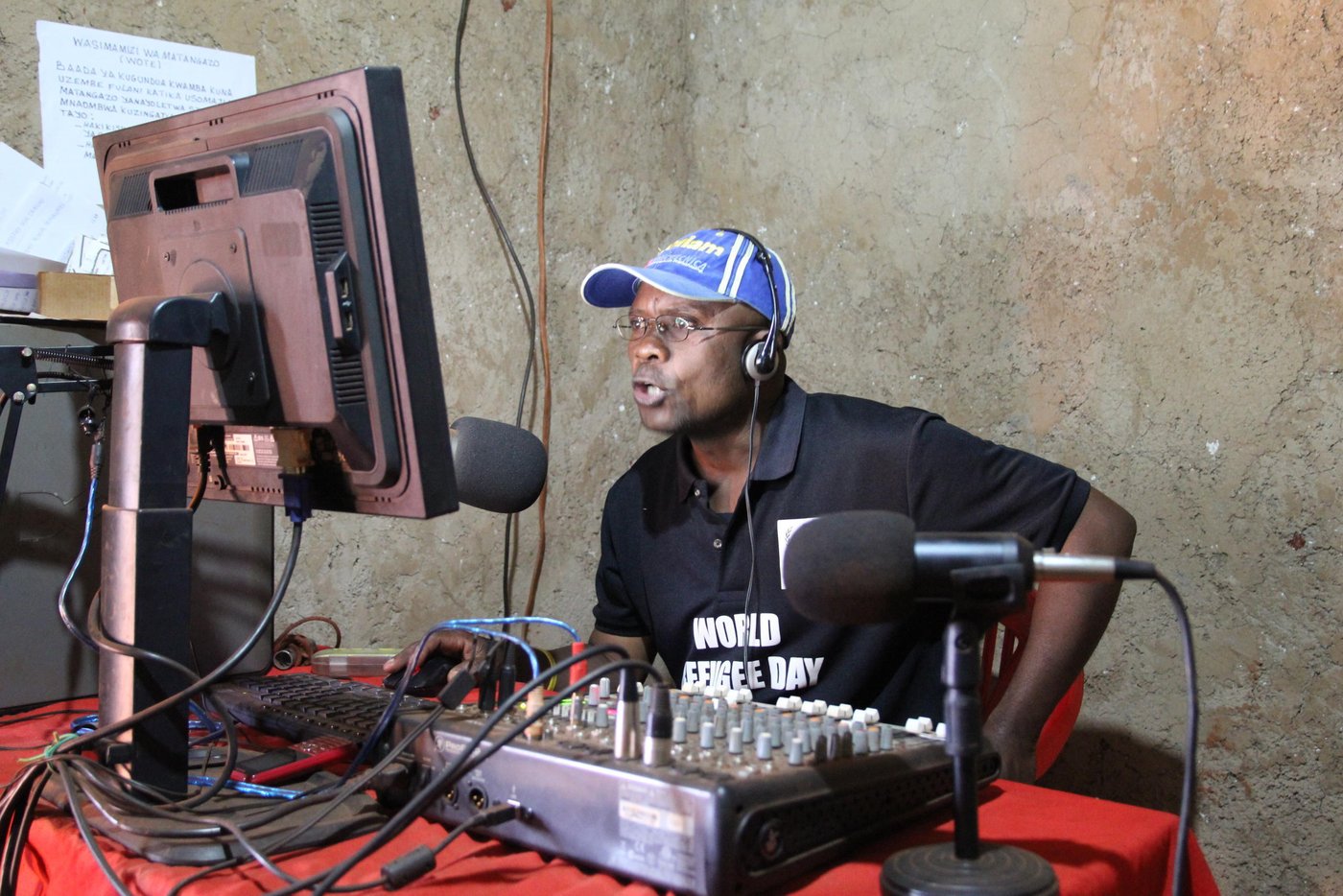
I Tanzania og Den demokratiske republikken Kongo blir journalister ofte trakassert og arrestert. Det stoppet ikke kongoleseren Jonathan fra å starte sin egen radiokanal.
Da han kom til flyktningleiren Nyarugusu i Tanzania i 1997, var det lite informasjon å få tak i om saker som angikk leirens beboere. Det foregikk mye i Nyarugusu, en av verdens største flyktningleirer. Det var bare ingen som visste om det.
Noe måtte gjøres. Jonathan fant en høyttaler og en liten radiosender. Om dagene gikk han rundt til hjelpeorganisasjonene som jobbet i leiren og samlet informasjon. På kveldstid kunngjorde han det han hadde fått vite. Det tok ikke lang tid før en gruppe mennesker samlet seg rundt høyttalerne hver kveld for å høre siste nytt fra Jonathan.
Lyttere fra hele verden
Nå sitter ikke Jonathan lenger utendørs med høyttaleren sin. Han har et ordentlig studio. Radio Umoja 92.3 FM er en populær radiokanal i flyktningleiren, hvor over 120.000 kongolesiske og burundiske flyktninger har søkt tilflukt fra volden i hjemlandene. Etter nesten 20 år på lufta har radiokanalen nå lyttere fra hele verden, blant annet fra USA og Norge.
– Ved hjelp av internett er vi i stand til å nå millioner av mennesker, forklarer Jonathan. Han får hilsener fra lyttere i land som Sør-Afrika, Nederland og Australia.
– Radio Umoja er en uavhengig kanal og tilhører flyktningene, sier han.
Radio Umoja er en uavhengig kanal og tilhører flyktningene.Jonathan, radiovert
Flyktning og journalist
Gabriel og Maria er to av Jonathans kolleger. De er frivillige radioverter og reportere som informerer beboerne i flyktningleiren om siste nytt.
Gabriel har blitt tvunget på flukt fra hjemlandet Burundi flere ganger. Kongolesiske Maria har levd som flyktning i Tanzania siden 2001. Å jobbe frivillig for Radio Umoja gir hverdagen deres mening.
– Jeg har drømt om dette siden jeg var barn, forteller Gabriel. – Jeg har alltid ønsket å bli journalist.
Maria jobber som utegående reporter og rapporterer fra studio. Hun synes jobben hun gjør er viktig, også for å inspirere unge jenter. Som barn likte hun å høre på radio om kvelden. Nå er hun voksen og alenemor, og hun ser på seg selv som et forbilde.
– Folk har alltid lyst til å snakke med meg når de ser meg på gata, og barna kommer bort for å hilse på meg, forteller hun.
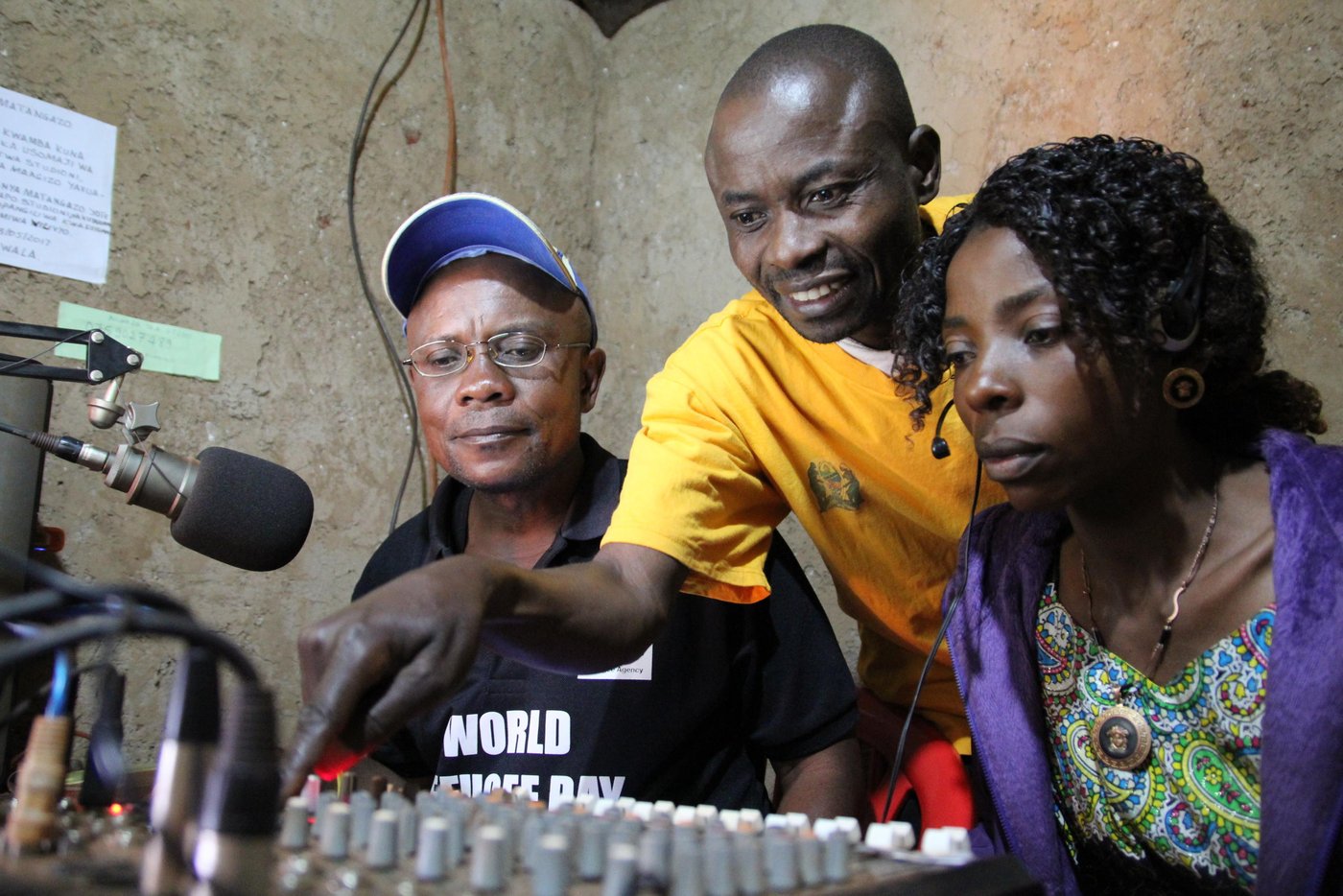
Utfordringer
Selv om det er meningsfylt arbeid, er det ikke alltid lett å drive en radiokanal i en flyktningleir. Jonathan, Gabriel og Maria har sendinger fra tidlig morgen til sent på kveld, men de har få midler å rutte med.
For å betale for løpende kostnader, må de noen ganger selge reklameplass i sendetiden.
– Lytterne liker det ikke når vi kutter ned på sendetiden, sier Jonathan.
Selv jobber de frivillig uten lønn.
På tross av utfordringene, mister de ikke motet. Tvert imot har Radio Umoja stadig større ambisjoner. Teamet holder radiokurs for unge flyktninger som er interessert i journalistikk, og slik blir neste generasjon klare til å ta over når den tid kommer.
Du kan høre på Radio Umoja online på www.umojaradio.nl.


